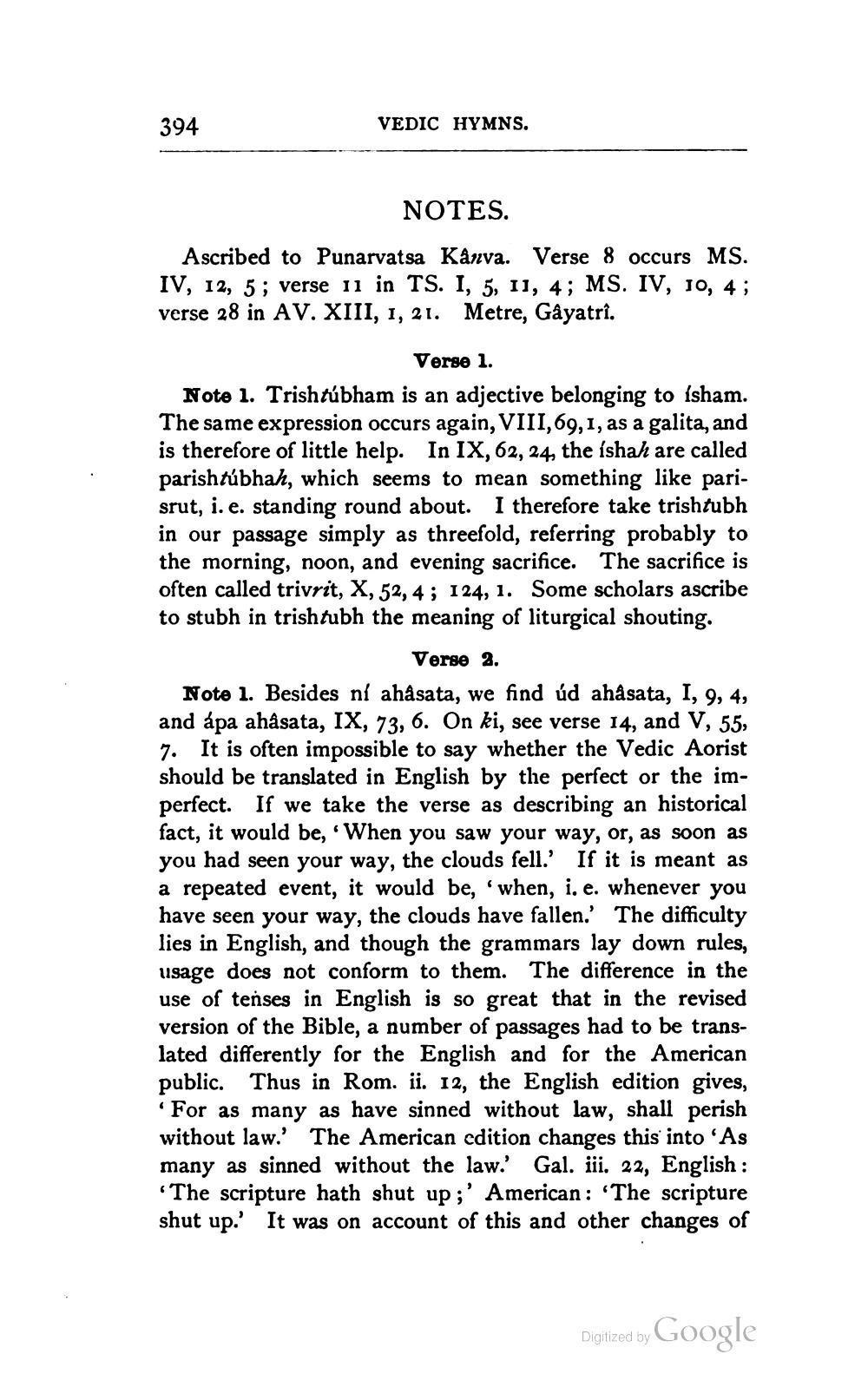________________
394
VEDIC HYMNS.
NOTES. Ascribed to Punarvatsa Kårva. Verse 8 occurs MS. IV, 12, 5; verse 11 in TS. I, 5, 11, 4; MS. IV, 10, 4; verse 28 in AV. XIII, 1, 21. Metre, Gayatri.
Verse 1. Note 1. Trishtúbham is an adjective belonging to Isham. The same expression occurs again, VIII,69,1, as a galita, and is therefore of little help. In IX, 62, 24, the íshah are called parishtúbhah, which seems to mean something like parisrut, i. e. standing round about. I therefore take trishtubh in our passage simply as threefold, referring probably to the morning, noon, and evening sacrifice. The sacrifice is often called trivrit, X, 52, 4; 124, 1. Some scholars ascribe to stubh in trishtubh the meaning of liturgical shouting.
Verse 2. Note 1. Besides ni ahäsata, we find úd ahásata, I, 9, 4, and ápa ahåsata, IX, 73, 6. On ki, see verse 14, and V, 55, 7. It is often impossible to say whether the Vedic Aorist should be translated in English by the perfect or the imperfect. If we take the verse as describing an historical fact, it would be, When you saw your way, or, as soon as you had seen your way, the clouds fell.' If it is meant as a repeated event, it would be, when, i. e. whenever you have seen your way, the clouds have fallen.' The difficulty lies in English, and though the grammars lay down rules, usage does not conform to them. The difference in the use of tenses in English is so great that in the revised version of the Bible, a number of passages had to be translated differently for the English and for the American public. Thus in Rom. ii. 12, the English edition gives,
For as many as have sinned without law, shall perish without law.' The American edition changes this into 'As many as sinned without the law.' Gal. iii. 22, English: “The scripture hath shut up;' American: 'The scripture shut up.' It was on account of this and other changes of
Digized by Google




